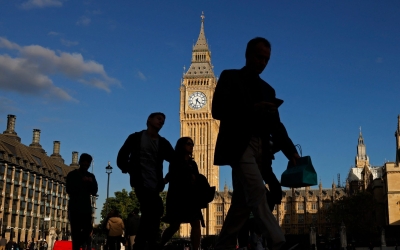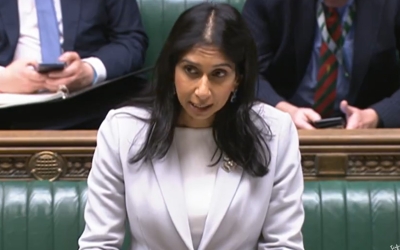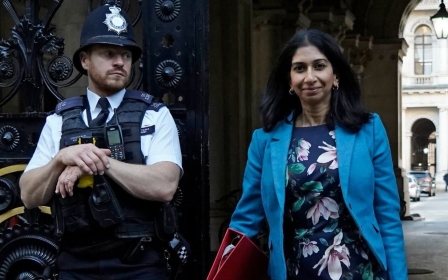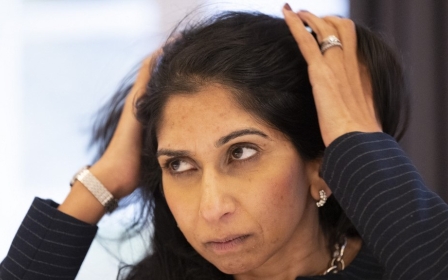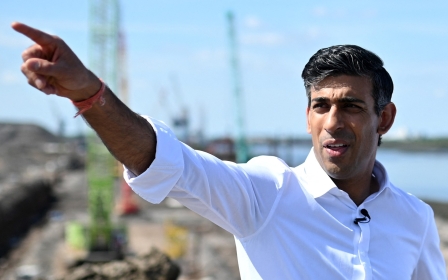What is Prevent and why is it controversial?
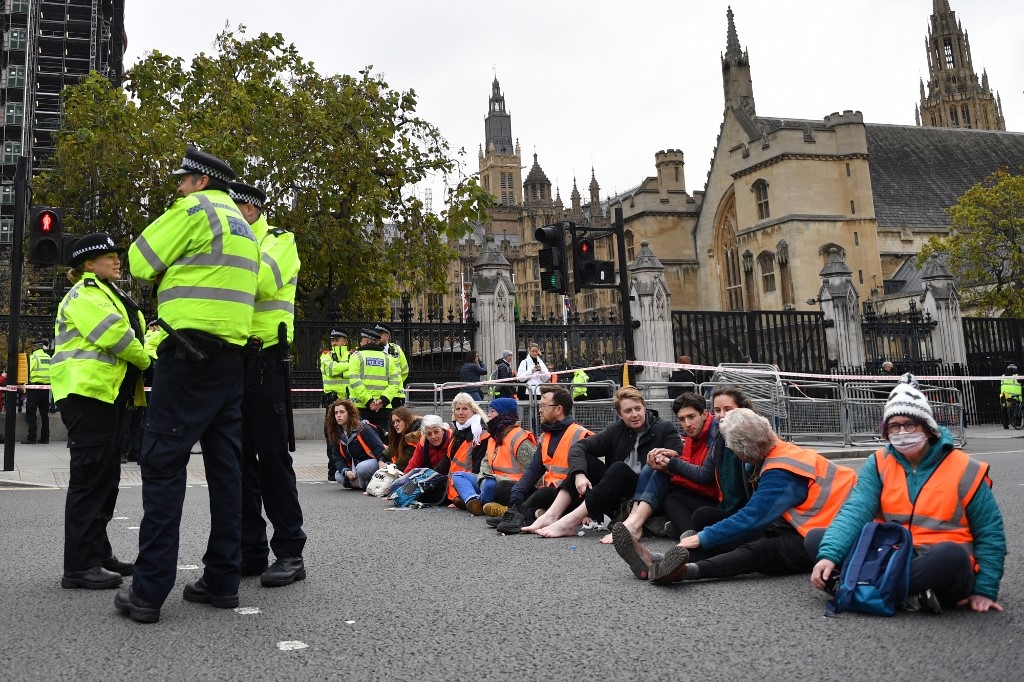
Prevent is a controversial programme within the UK government's counter-terrorism strategy that critics say is disproportionately targeted at Muslim communities and undermines basic rights and freedoms.
Launched in 2005 by Tony Blair's Labour government, the strategy seeks to "safeguard and support those vulnerable to radicalisation, to stop them from becoming terrorists or supporting terrorism".
However, soon after its inception, the programme's focus on Muslims prompted complaints of discrimination and concerns that it was crafted to collect intelligence against Muslim community members.
As a result, in 2011, under David Cameron's coalition government, Prevent's remit was expanded to cover all forms of extremism.
What is the Prevent Strategy?
+ Show - HidePrevent is a programme within the British government's counter-terrorism strategy that aims to “safeguard and support those vulnerable to radicalisation, to stop them from becoming terrorists or supporting terrorism”.
It was publicly launched in the aftermath of the 2005 London bombings and was initially targeted squarely at Muslim communities, prompting continuing complaints of discrimination and concerns that the programme was being used to collect intelligence.
In 2011, Prevent's remit was expanded to cover all forms of extremism, defined by the government as “vocal or active opposition to fundamental British values, including democracy, the rule of law, individual liberty and mutual respect and tolerance of different faiths and beliefs.”
In 2015, the government introduced the Prevent Duty which requires public sector workers including doctors, teachers and even nursery staff to have “due regard to the need to prevent people being drawn into terrorism”.
A key element of Prevent is Channel, a programme that offers mentoring and support to people assessed to be at risk of becoming terrorists. Prevent referrals of some young children have proved contentious. 114 children under the age of 15 received Channel support in 2017/18.
Criticism of the Prevent Duty includes that it has had a “chilling effect” on free speech in classrooms and universities, and that it has turned public sector workers into informers who are expected to monitor pupils and patients for “signs of radicalisation”. Some critics have said that it may even be counter-productive.
Advocates argue that it is a form of safeguarding that has been effective in identifying and helping troubled individuals. They point to a growing number of far-right referrals as evidence that it is not discriminatory against Muslims.
In January 2019 the government bowed to pressure and announced that it would commission an independent review of Prevent. This was supposed to be completed by August 2020. After being forced to drop its first appointed reviewer, Lord Carlile, over his past advocacy for Prevent, it conceded that the review would be delayed.
In January 2021 it named William Shawcross as reviewer. Shawcross's appointment was also contentious and prompted many organisations to boycott the review. Further delays followed. Shawcross's review, calling for a renewed focus within Prevent on "the Islamist threat", was finally published in February 2023 - and immediately denounced by critics.
This was loosely defined in government documents relating to the strategy as "vocal or active opposition to fundamental British values, including democracy, the rule of law, individual liberty and mutual respect and tolerance of different faiths and beliefs".
In 2015, the government substantially extended the reach of Prevent into schools, hospitals and other public sector settings by introducing the Prevent Duty as part of the Counter-Terrorism and Security Act.
The duty requires public sector workers, including doctors, teachers and even nursery staff, to report signs of potential radicalisation and "prevent people being drawn into terrorism".
Guidance for public sector workers on beliefs and behaviours which might require referral included questioning western foreign policy, feeling anxious or reserved in class, or feeling a desire for political or moral change.
Targeting Muslims
Despite Prevent's expanded remit to focus on all types of extremism, Muslims continue to make up a disproportionate number of referrals to the programme.
Figures released in 2017 showed that over 65 percent of referrals in England and Wales were Muslim, including nearly 2,000 Muslim children, despite Muslims making up less than five percent of the total population at the time.
A key element of Prevent which has proven to be contentious is Channel, a programme which offers mentoring and support to people assessed to be at risk of radicalisation.
Leaked Prevent guidance also showed UK Counter Terrorism Police urging Prevent practitioners to refer people associated with various anti-racist groups, left-wing groups, pro-Palestine groups and anti-arms campaigners in Britain.
As a result criticism mounted with claims that Prevent Duty was having a "chilling effect" on free speech in classrooms and universities.
Some opponents of the strategy, including the British Medical Association, teachers and university lecturers, also said it may be counter-productive.
"Prevent is having the opposite of its intended effect: by dividing, stigmatising and alienating segments of the population, Prevent could end up promoting extremism, rather than countering it," Maina Kiai, the UN special rapporteur on freedom of peaceful assembly, said in a 2017 report.
Reviewing Prevent
In January 2019, the government announced it would commission an independent review of Prevent.
The review was supposed to be completed by August 2020, but after being forced to drop its first appointed reviewer, Lord Carlile, over his past advocacy for the strategy, it conceded that the review would be delayed.
In January 2021, William Shawcross, who chaired the Charity Commission between 2012 and 2018, was named as reviewer.
The decision was instantly met with criticism by rights groups and large segments of the Muslim community over previous remarks he made about Islam.
In 2012, as a director of the neoconservative thinktank the Henry Jackson Society, Shawcross said: "Europe and Islam is one of the greatest, most terrifying problems of our future. I think all European countries have vastly, very quickly growing Islamic populations."
Meanwhile in his book, Justice and the Enemy, he defended American uses of interrogation techniques, including waterboarding, which is widely regarded as torture, as well as the detention of suspected al-Qaeda fighters at Guantanamo Bay.
Additionally, under Shawcross' tenure, the Charity Commission for England and Wales was accused of institutional bias against Muslims by the Claystone thinktank.
More than 450 Islamic organisations, including 350 mosques and imams, boycotted the government's review of the anti-radicalisation programme as a result.
Following the mounting criticism against his appointment, Shawcross said that some of his views had been "misrepresented or misinterpreted."
Middle East Eye propose une couverture et une analyse indépendantes et incomparables du Moyen-Orient, de l’Afrique du Nord et d’autres régions du monde. Pour en savoir plus sur la reprise de ce contenu et les frais qui s’appliquent, veuillez remplir ce formulaire [en anglais]. Pour en savoir plus sur MEE, cliquez ici [en anglais].


